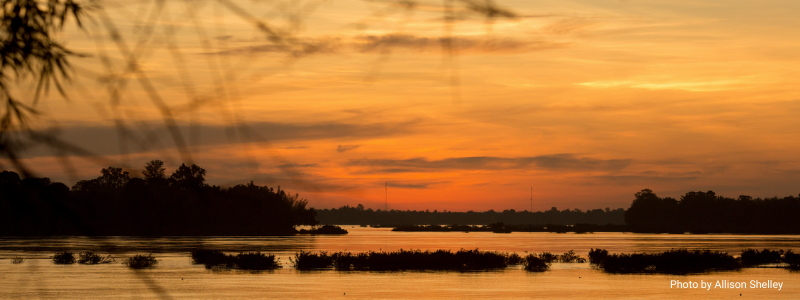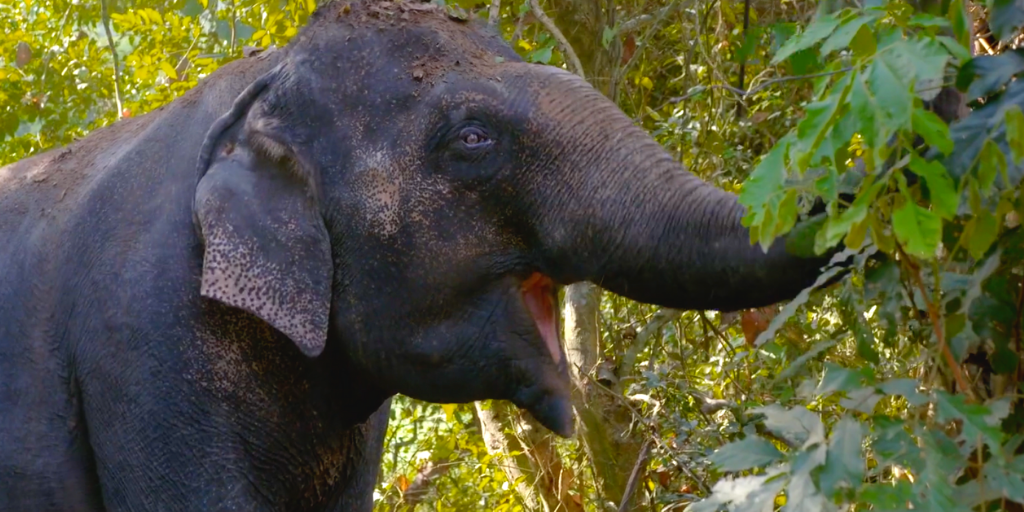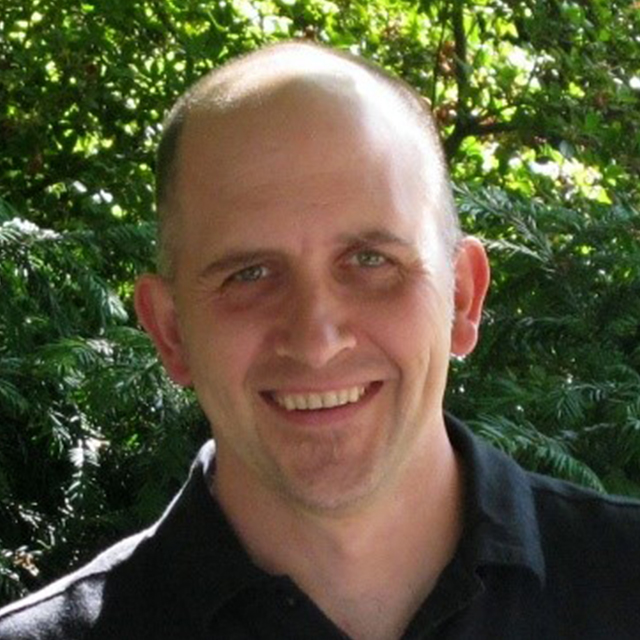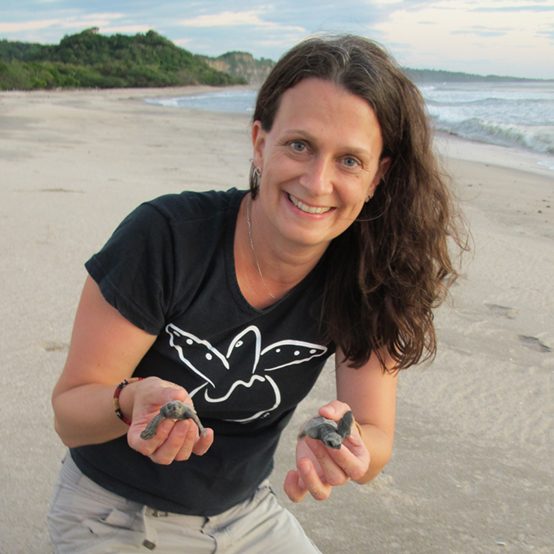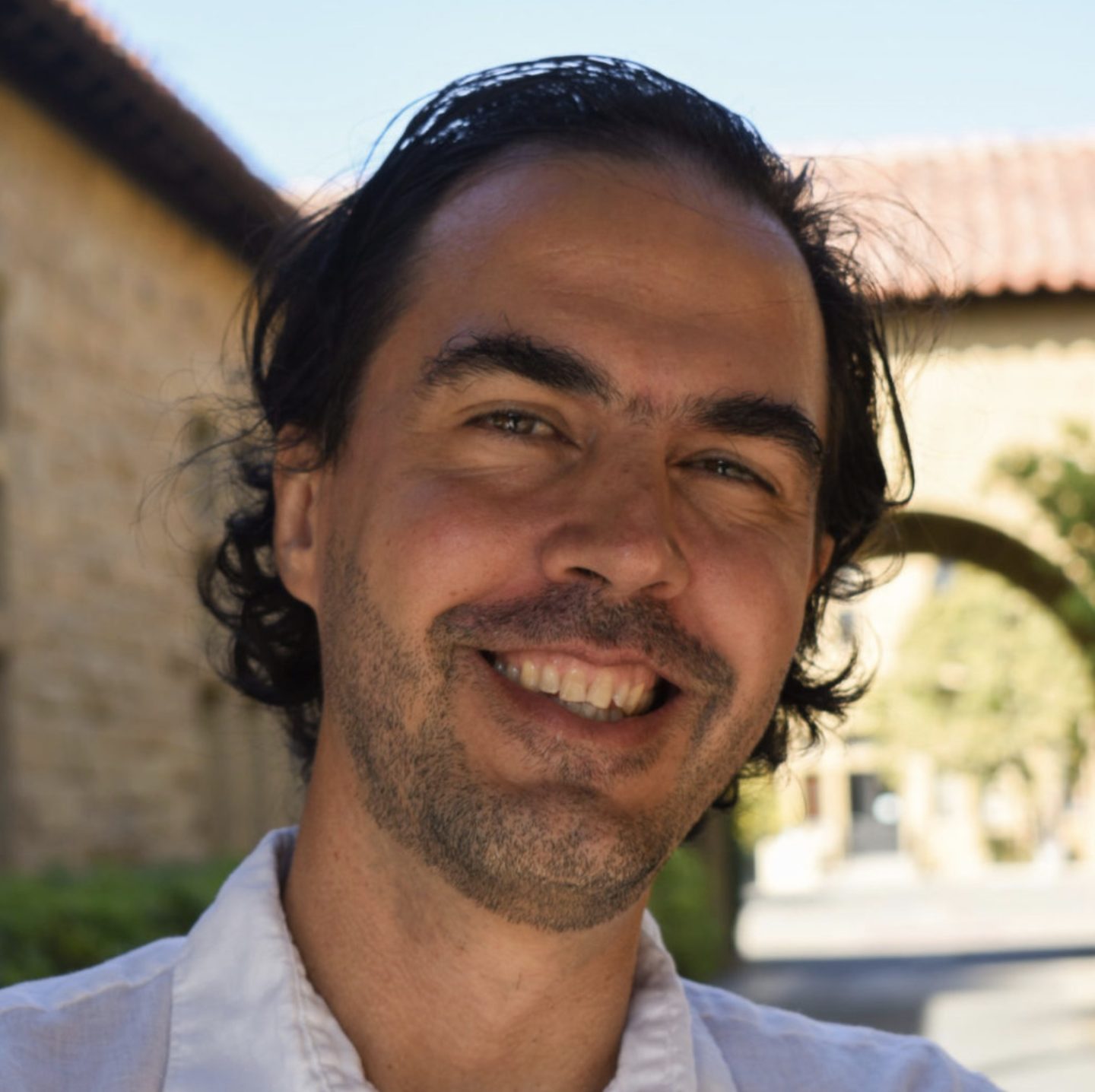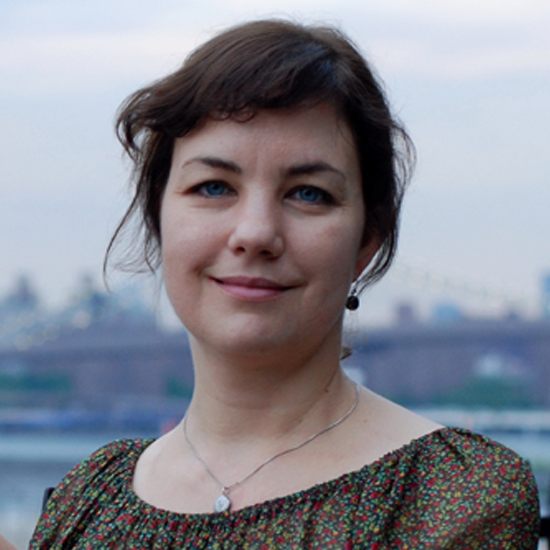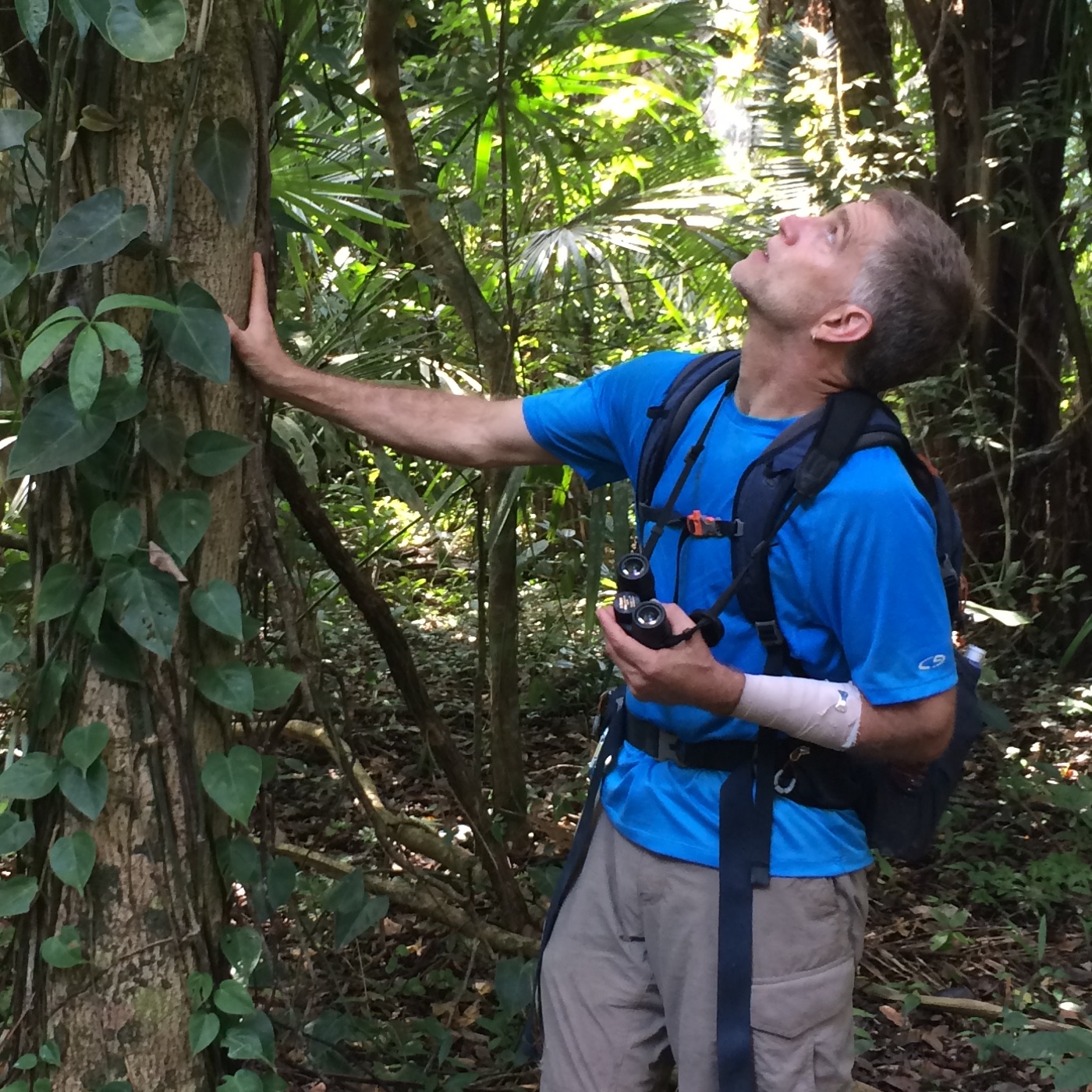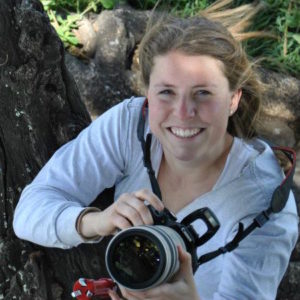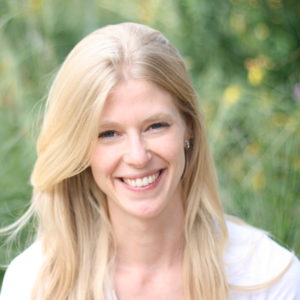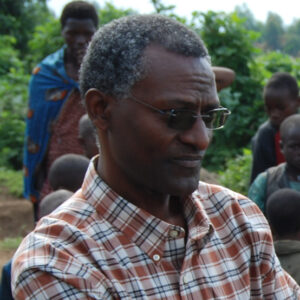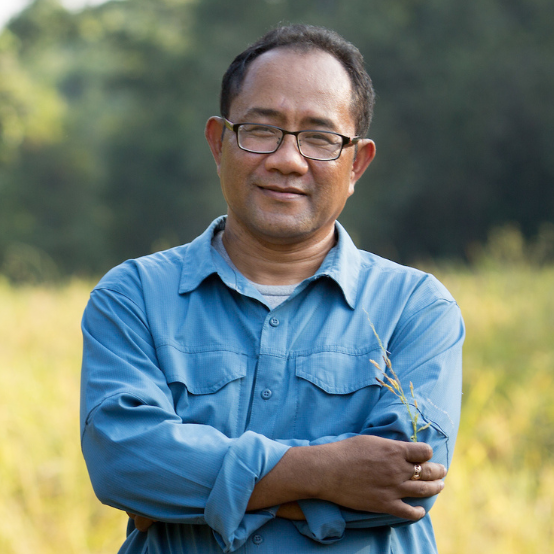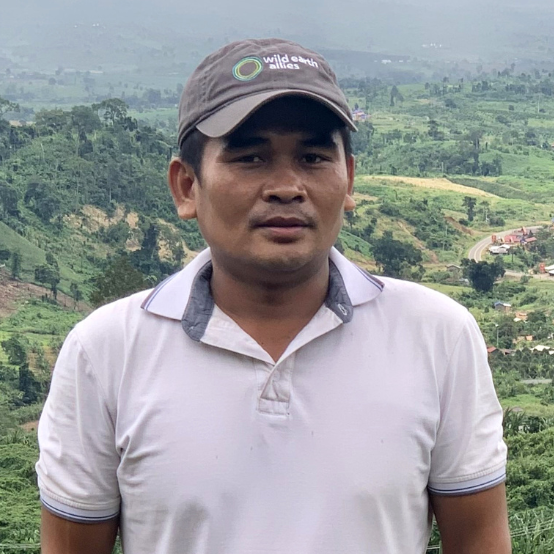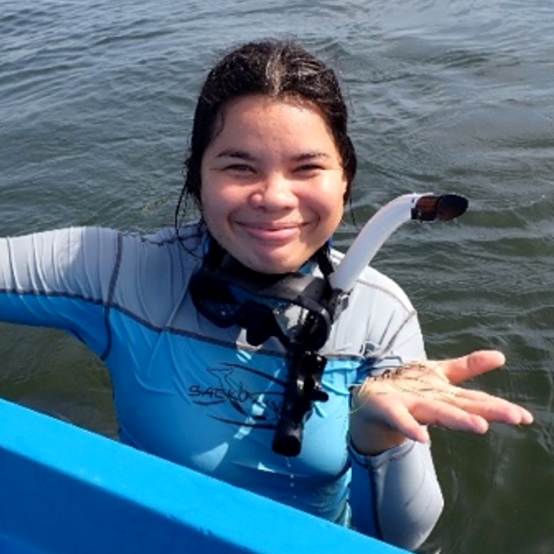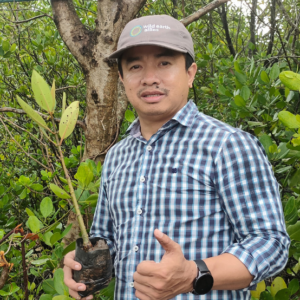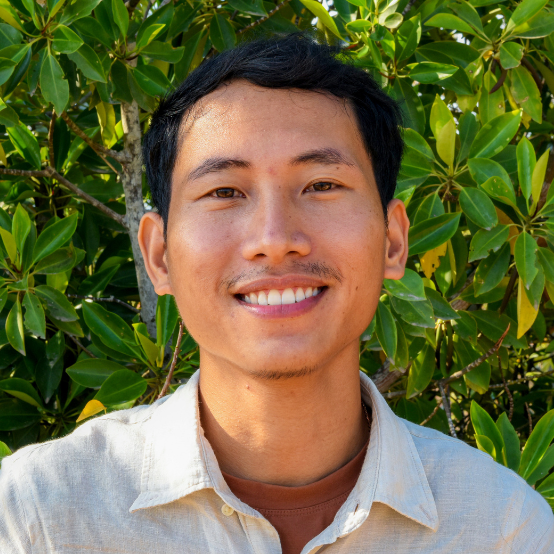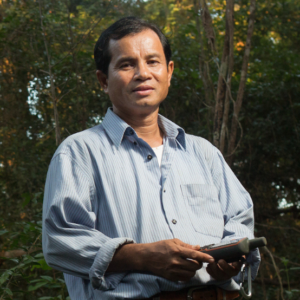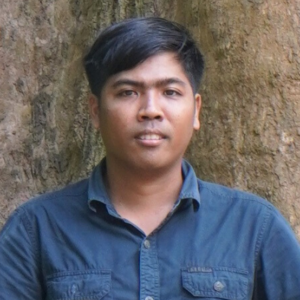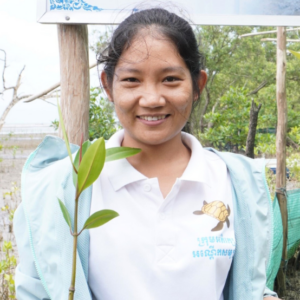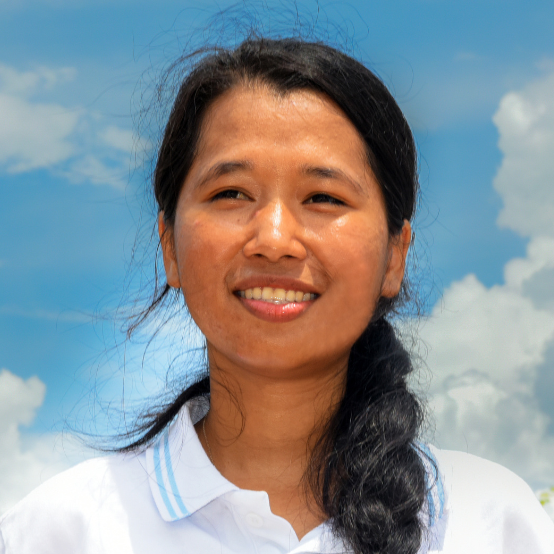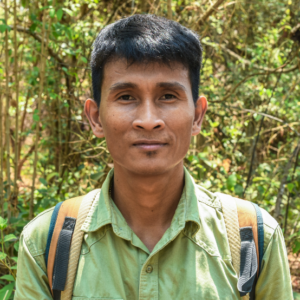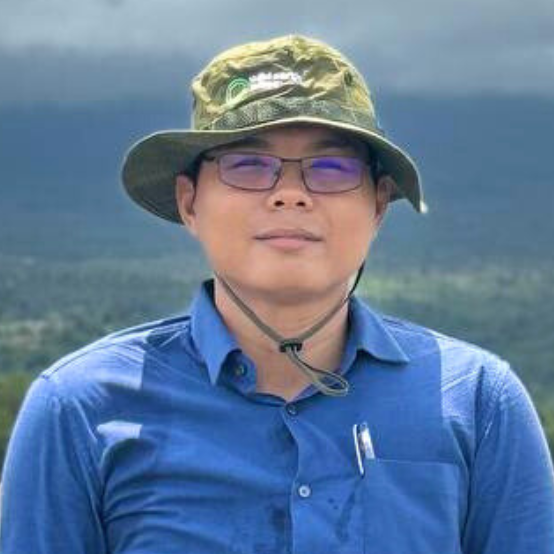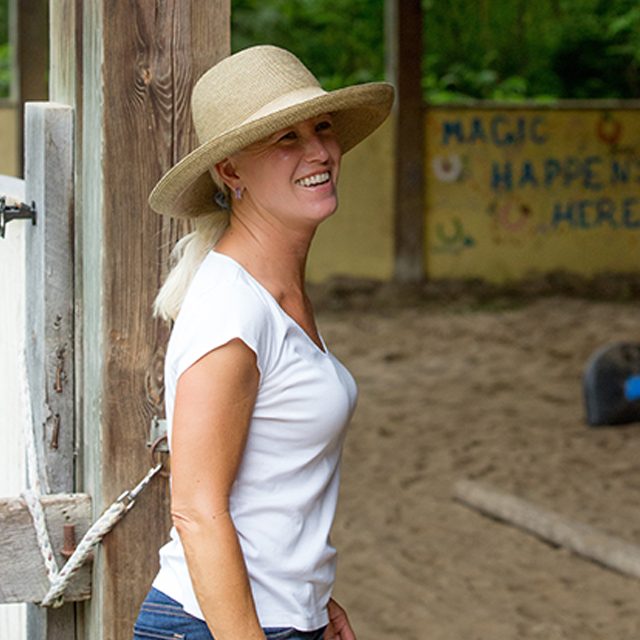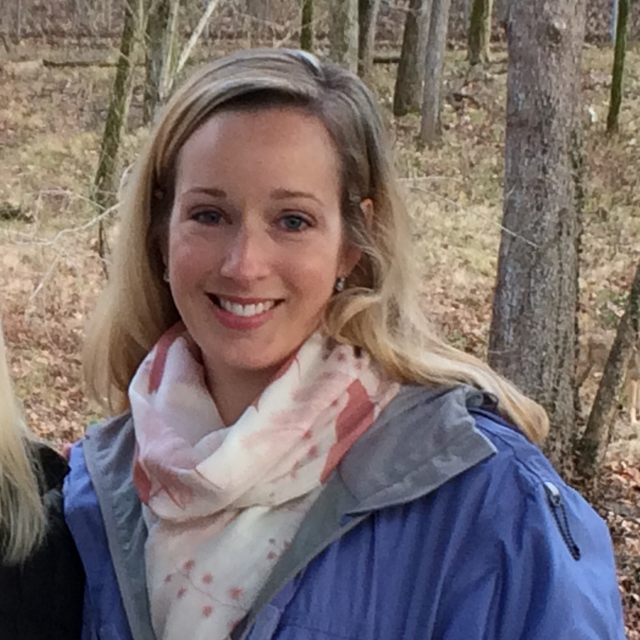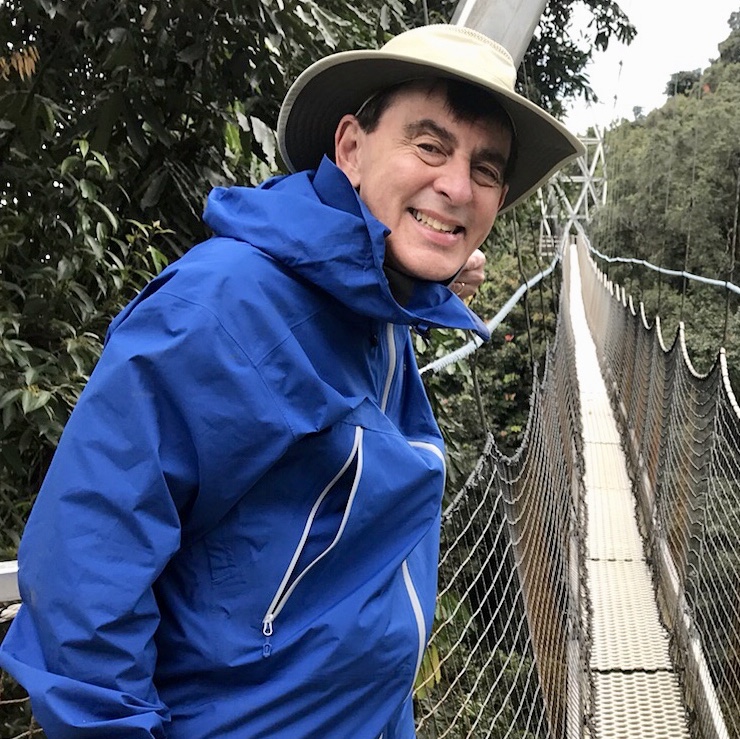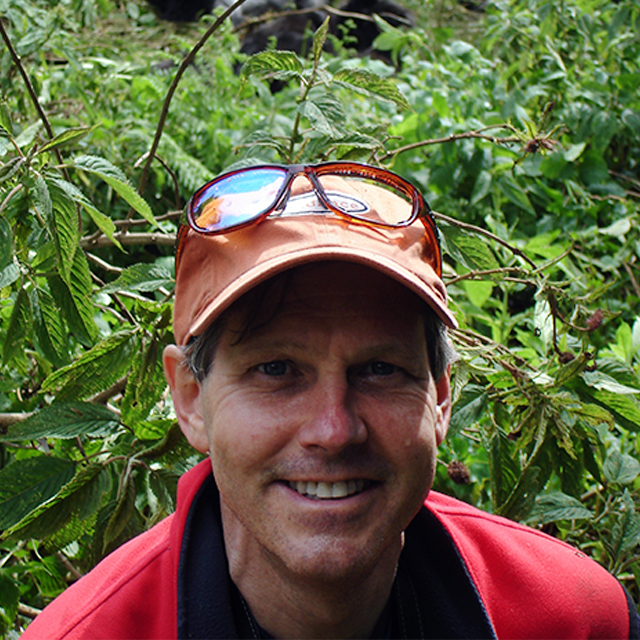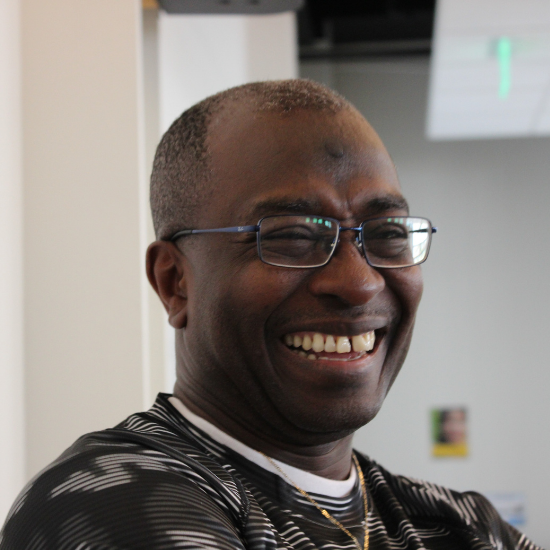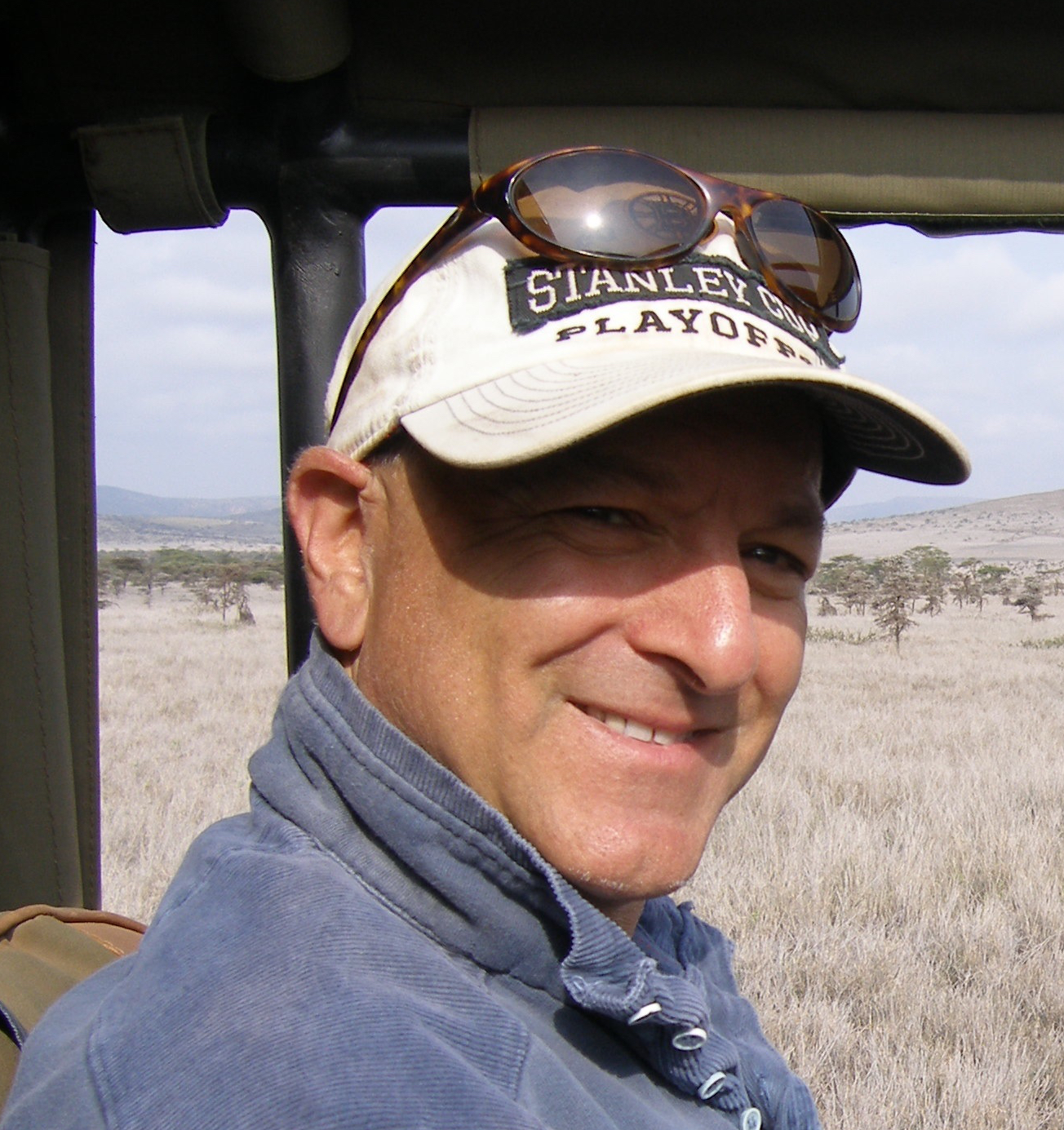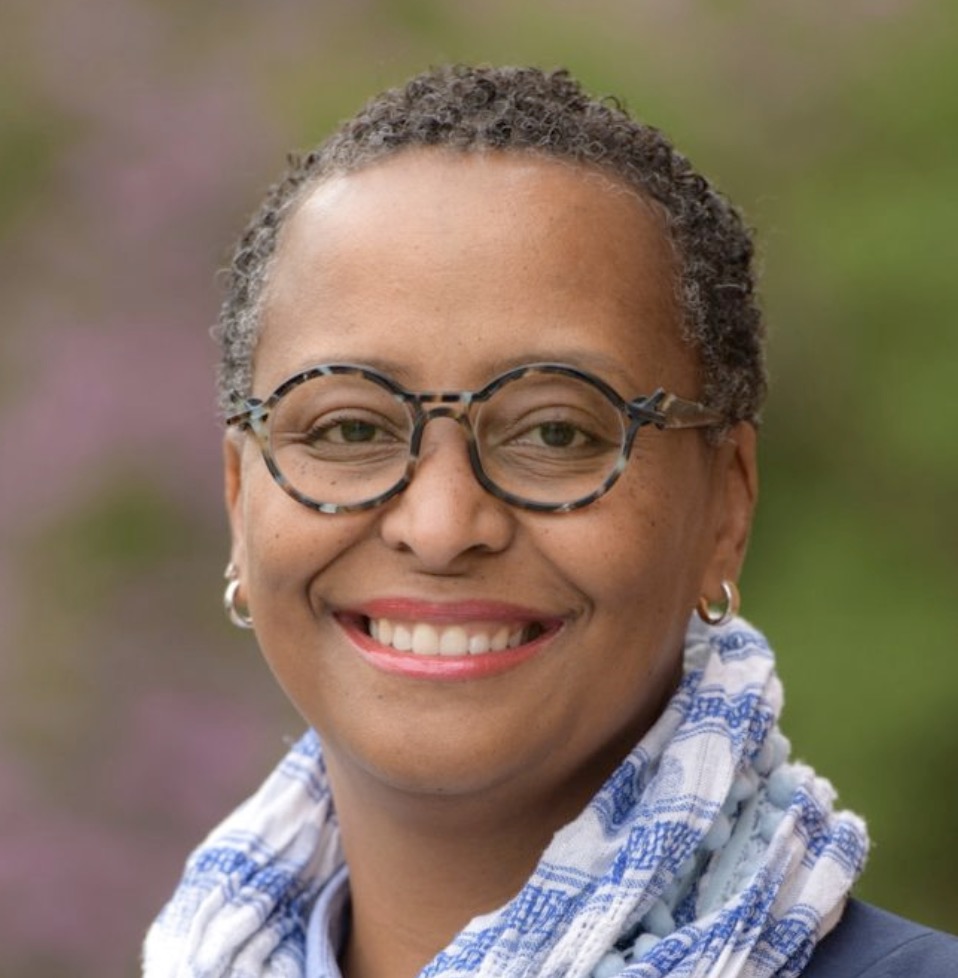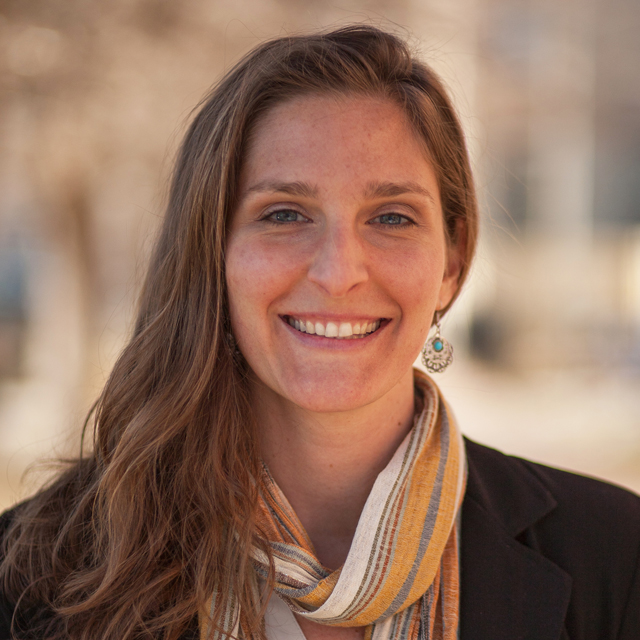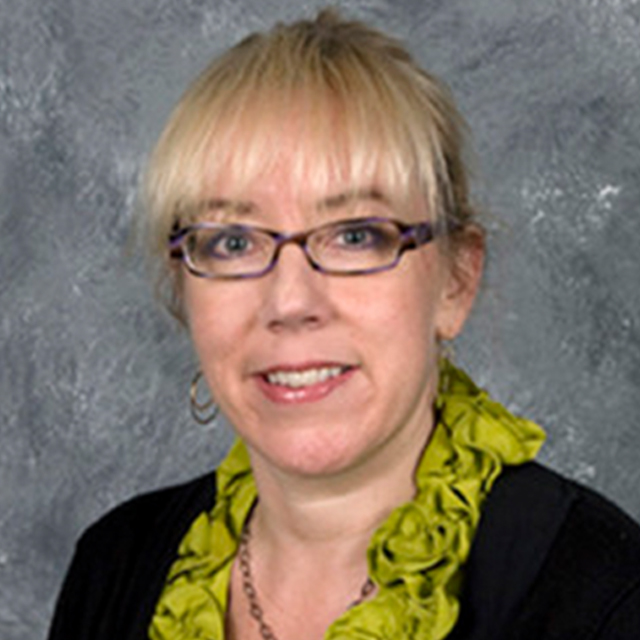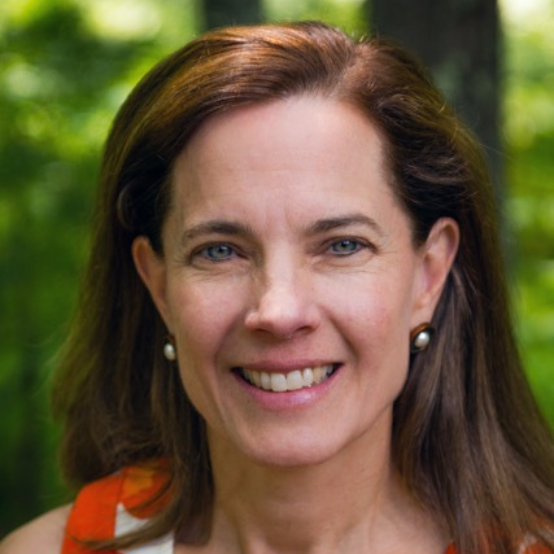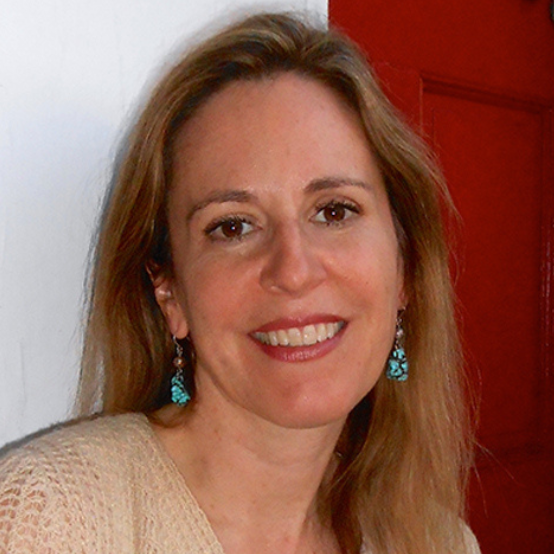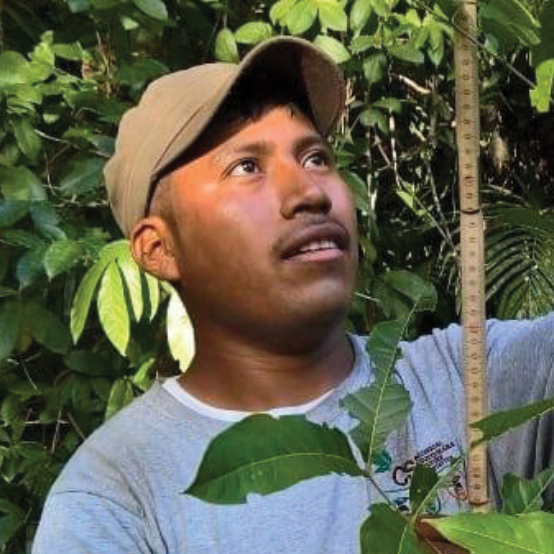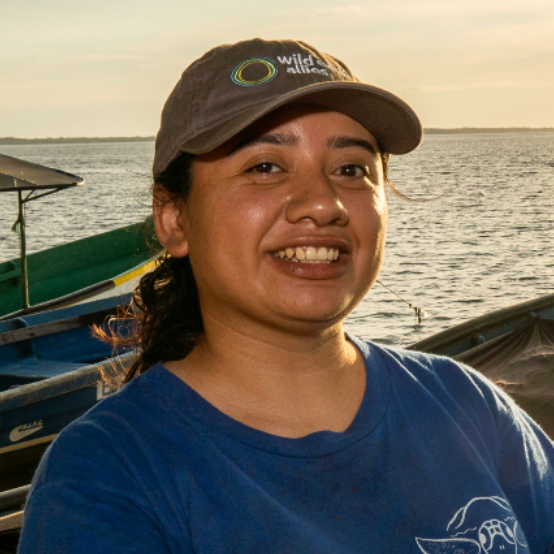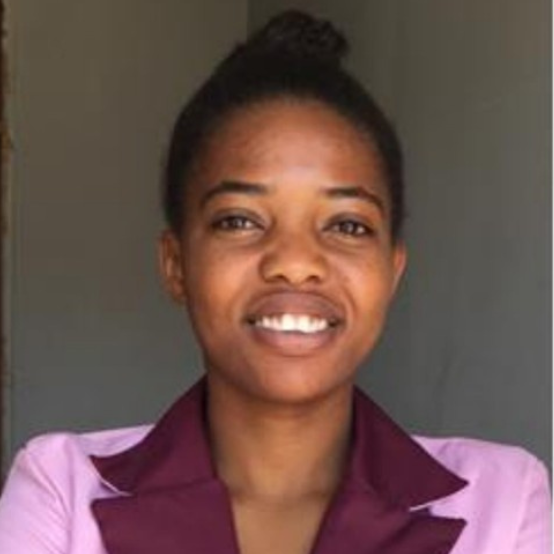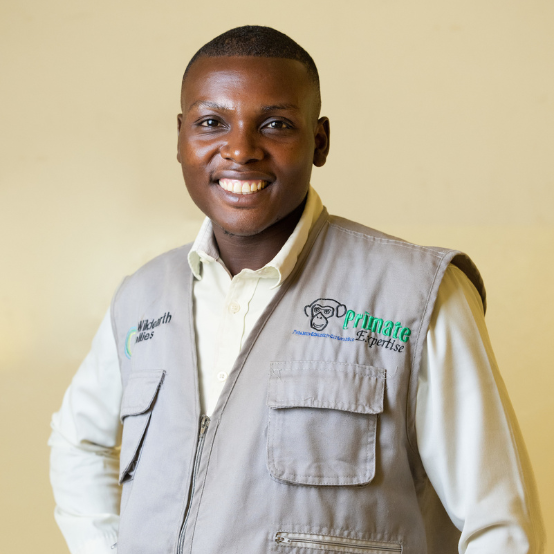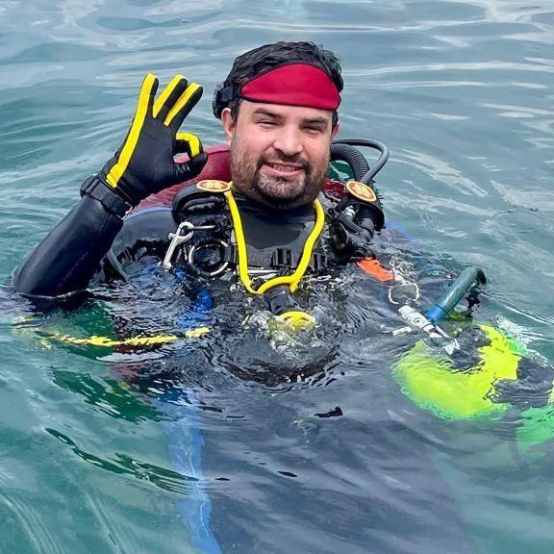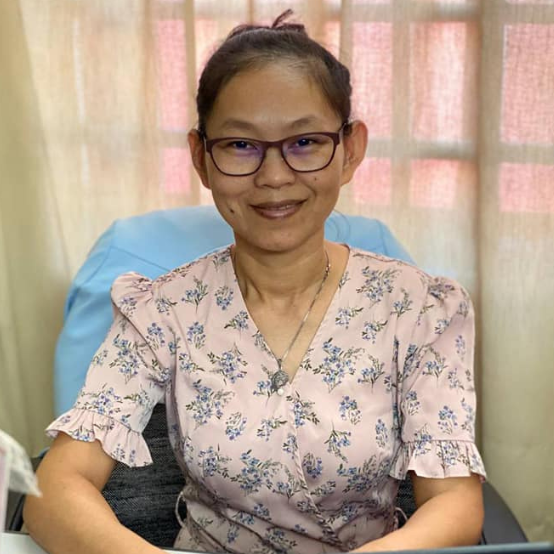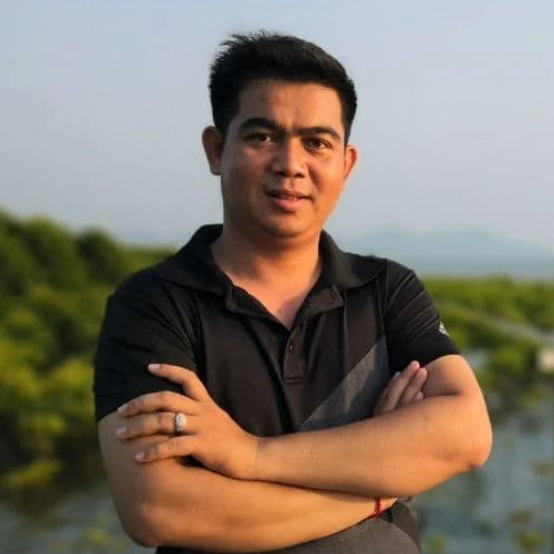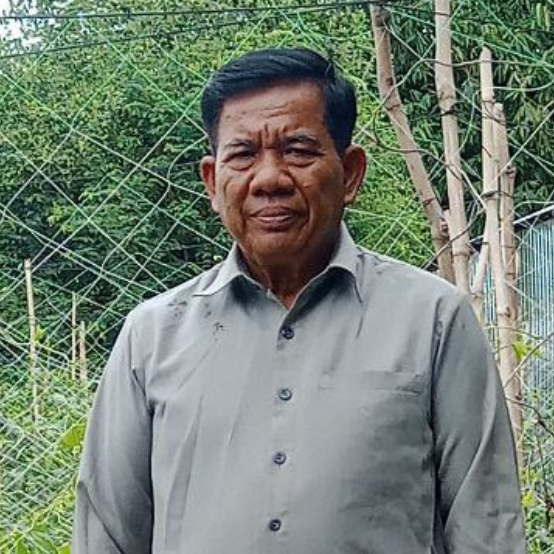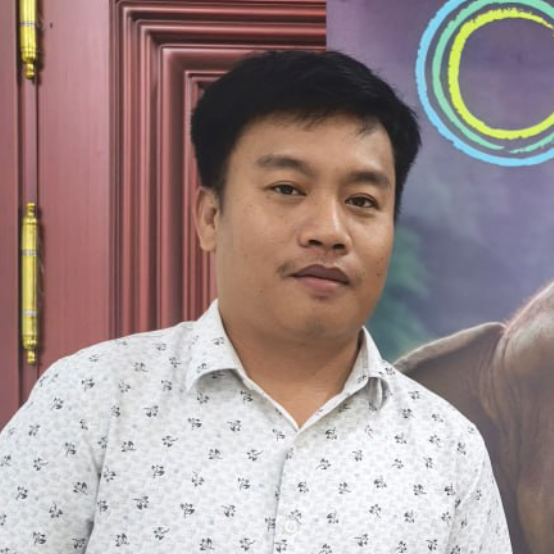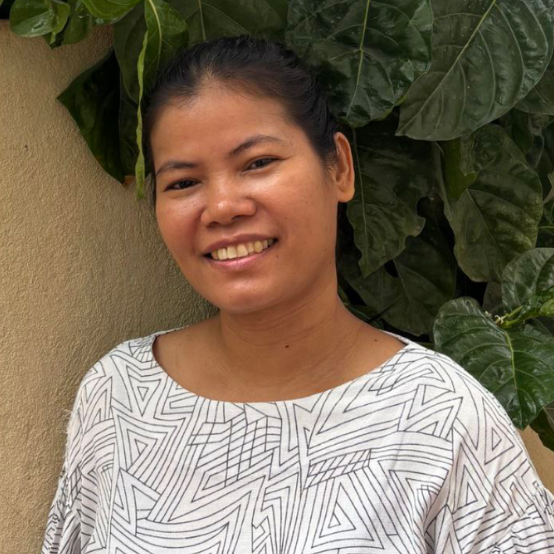What a year it has been. The pandemic has affected all corners of our global operation, placing intense pressure on community well-being and triggering threats to at-risk wildlife and habitats. And yet, our teams and partners have shown great resilience and we continue to make important progress protecting vital areas of the natural world. Here are 2020 highlights worth celebrating:
Cambodia
Our short film, Uncle Elephant, featuring the life of our Cambodia Director Tuy Sereivathana and his dream to protect Asian elephants has been accepted to eight film festivals. We participated as finalists in The World Wildlife Day 2020 Film Showcase at the United Nations in New York City.
Our biologist Neang Thy discovered two new species of endemic lizards – a bent-toed gecko (Cyrtodactylus phnomchiensis) and a skink (Sphenomorphus preylangensis). These discoveries were published in a scientific journal and received media coverage around the world.
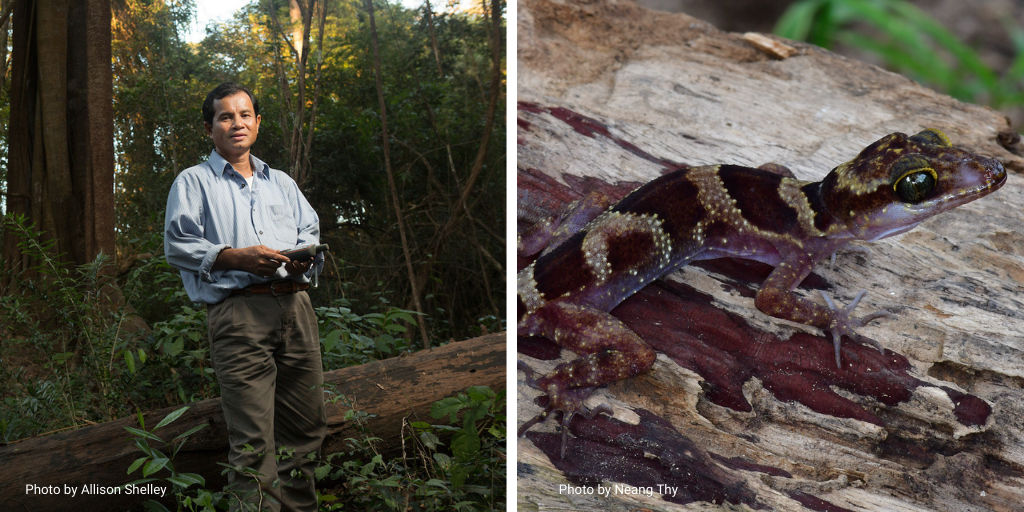 Wild Earth Allies biologist Neang Thy (L) and the newly discovered a bent-toed gecko.
Wild Earth Allies biologist Neang Thy (L) and the newly discovered a bent-toed gecko.
Belize
Our Botanist Dr. Steven Brewer has now recorded 1,233 tree species in Belize and made progress on the digital Trees of Belize field guide. This will be an important resource for forest managers, scientist, students, and naturalists of all kinds.
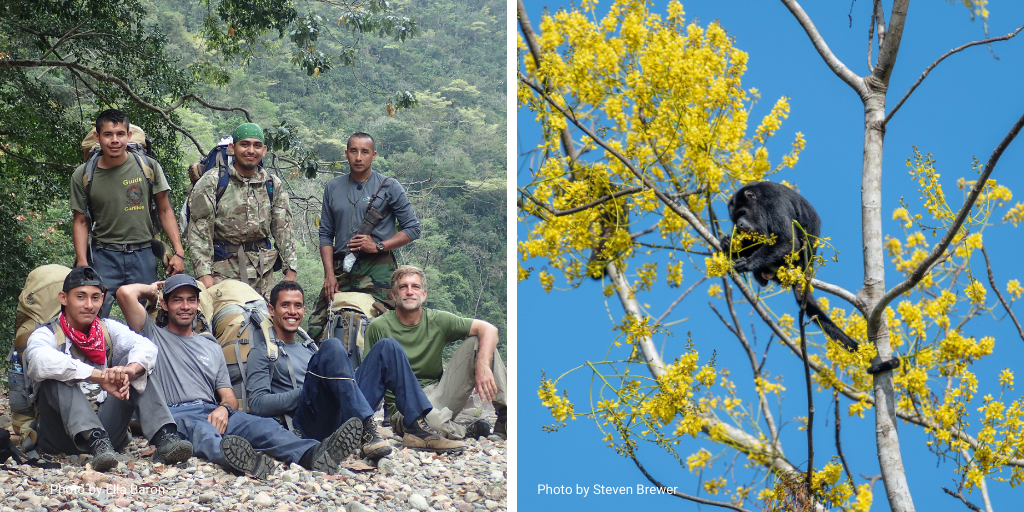 At left, Dr. Steven Brewer (front, right) with his close colleagues conducting field work in Belize. At right, a howler monkey feasts in a quamwood tree.
At left, Dr. Steven Brewer (front, right) with his close colleagues conducting field work in Belize. At right, a howler monkey feasts in a quamwood tree.
In collaboration with the University of Belize Environmental Research Institute and others, we continue exploring new areas. Together, we are discovering more tree species new to Belize and possibly new to science, including the Calliandra species (red flower below).
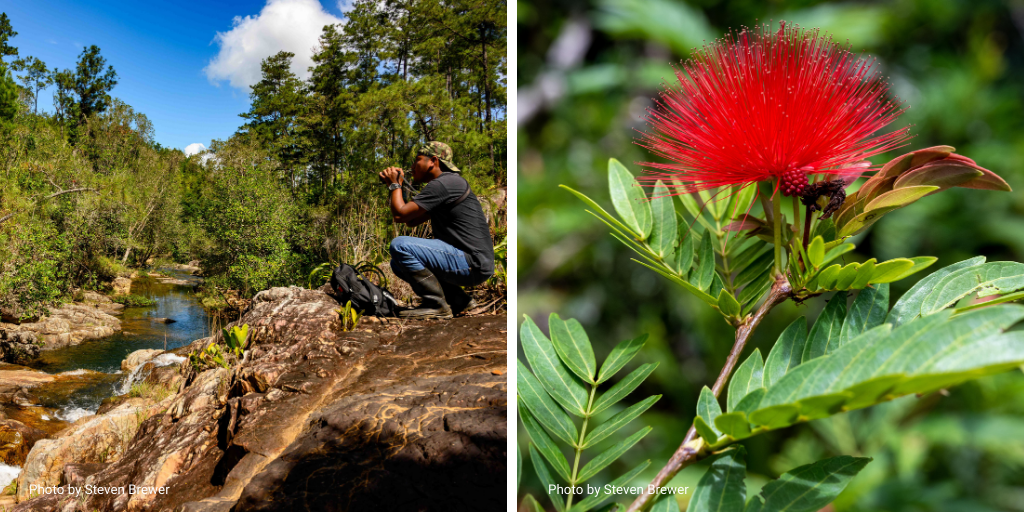 At left, Luis Peña surveying the Black Rock region of Cayo district Belize. At right, Calliandra species a species new to Belize and possibly new to science.
At left, Luis Peña surveying the Black Rock region of Cayo district Belize. At right, Calliandra species a species new to Belize and possibly new to science.
El Salvador
El Salvador hosts 50% of hawksbill nesting in the eastern Pacific, making it essential for these critically endangered marine turtles. Despite challenges from Covid-19, the 2020 nesting season was one of the most productive since our partner ProCosta began their conservation work in 2008.
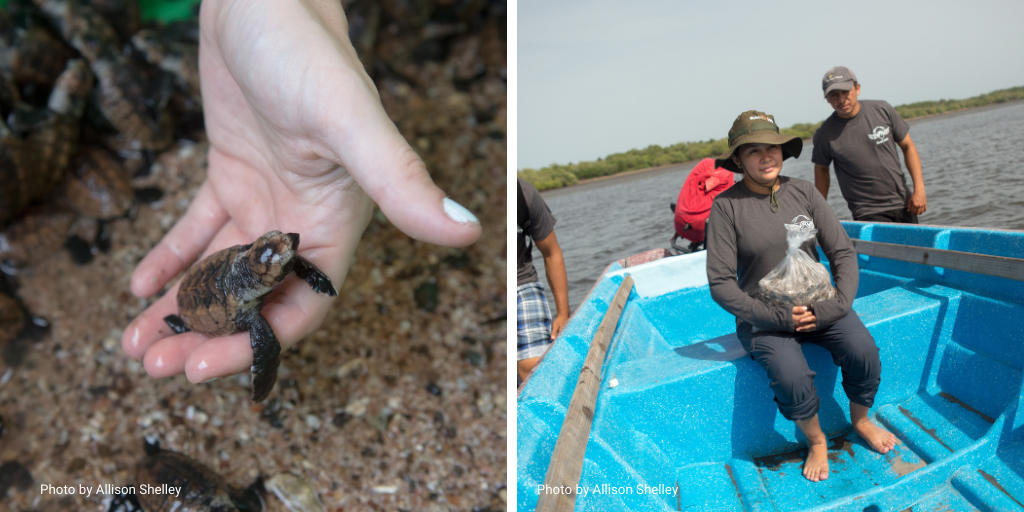 At left, a Wild Earth Allies team member holds a hatchling. At right, ProCosta program manager Sofia Chavarria transports hawksbill turtle eggs to a hatchery to be protected and monitored.
At left, a Wild Earth Allies team member holds a hatchling. At right, ProCosta program manager Sofia Chavarria transports hawksbill turtle eggs to a hatchery to be protected and monitored.
Rwanda
Together with our Conservation Advisor Eugène Rutagarama and the women-led cooperative Imbereheza Gahunga, we have built to date 129 rainwater collection tanks with families living in the foothills of Volcanoes National Park. Families with new water tanks report benefits including children staying in school, improved hygiene, fewer health problems, and no longer needing to enter gorilla habitat to fetch water. Our goal is to build 500 tanks in communities boarding the park to benefit more than 2,740 families and 12,000 individuals while reducing pressures on mountain gorillas and their habitat.
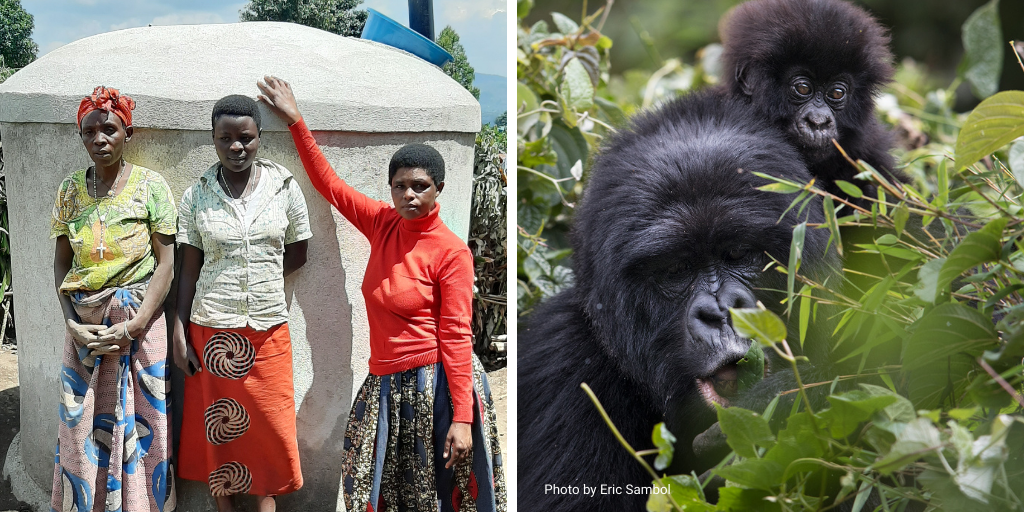 At left, leaders of Imbereheza Gahunga in front of one of the newly built rainwater collection tanks. At right, mountain gorillas.
At left, leaders of Imbereheza Gahunga in front of one of the newly built rainwater collection tanks. At right, mountain gorillas.
Democratic Republic of the Congo
Our “Ape Trees” initiative grows trees from seeds collected from ape dung to restore degraded forests and for community use and we expanded with a fourth nursery and will reforest 70 hectares with 14,000+ saplings.
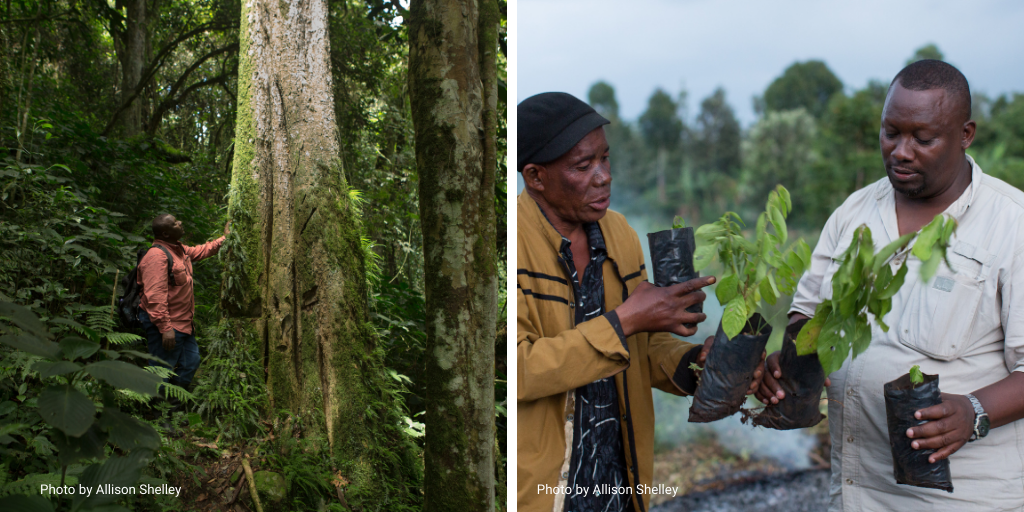 At left, Dr. Augustin K. Basabose, founder and executive director of Primate Expertise examines a tree in Kahuzi-Biega National Park, DRC while conducting field work. At right, Agronomist Laurent Obula Wuriam (L) examines seedlings with Dr. Basabose (R) at a plant nursery they have started to grow fruiting plants from seeds found in ape dung.
At left, Dr. Augustin K. Basabose, founder and executive director of Primate Expertise examines a tree in Kahuzi-Biega National Park, DRC while conducting field work. At right, Agronomist Laurent Obula Wuriam (L) examines seedlings with Dr. Basabose (R) at a plant nursery they have started to grow fruiting plants from seeds found in ape dung.
Looking Ahead
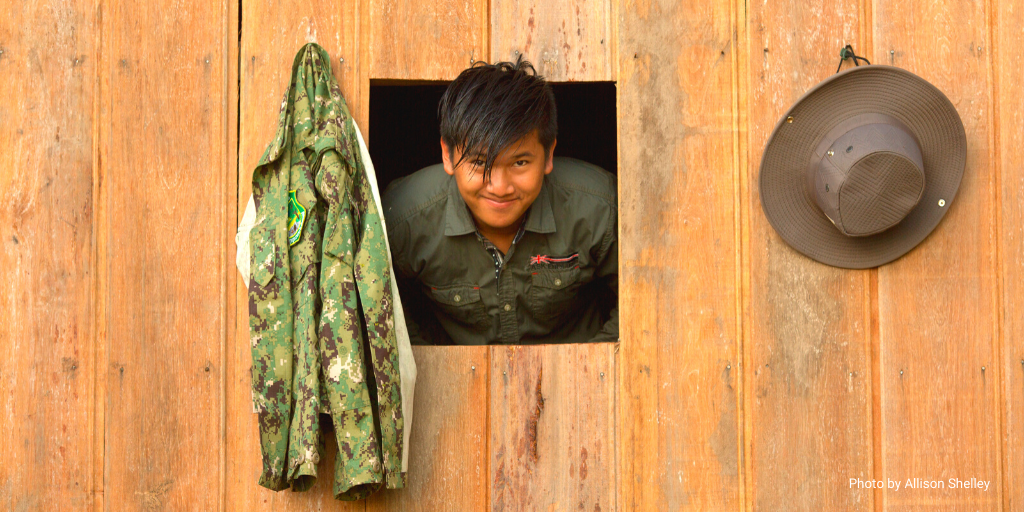
We are looking ahead to 2021 with deliberate optimism. Building on our strong track record, we are ready to expand our work. Highlights of our plans include:
- We built our first field station near Prey Lang forest in Cambodia, and this demonstrably improved both patrols and quality of life for rangers. This inspires us to design, build and maintain necessary field infrastructure in key sites globally, with a focus next year on needs in DRC, Belize and El Salvador.
- We are constantly assessing where we are most needed, including right here in the United States. With the private land trust Delaware Wild Lands, we will accelerate restoration of Delaware’s Great Cypress Swamp, a key part of the Chesapeake Bay watershed with important stands of native Bald Cypress and Atlantic White Cedar trees critical for migratory birds and myriad other wildlife.
- We are launching a global fellowship program to address the real need for a next generation of conservation talent with diverse backgrounds, skills and perspectives. This new initiative will provide an immersive experience for a diverse cadre of young practitioners around the world.
Protecting the planet begins with people. That is why we will be investing even more in our teams and partners this year and deepening implementation in order to tackle key threats driving biodiversity loss globally. Together, we can deliver greater impact for wildlife, habitats and people. Please join us.

